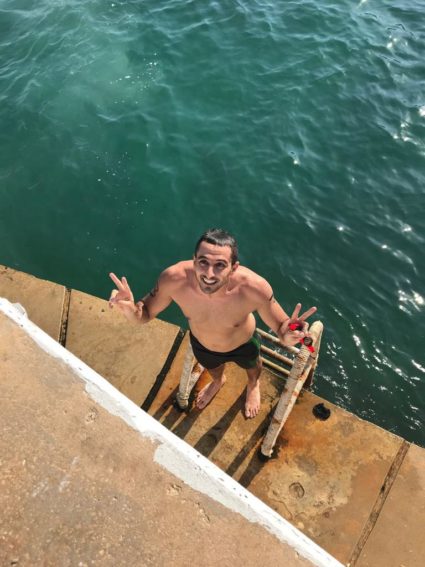I know we are all used to reading reports about water pollution and waste being dropped in our waters but I have made it my Saturday habit to swim in group from ATCL towards Casino Du Liban or Aqua Marina. As much as I enjoy swimming in the pool, swimming in the sea is a totally different experience. Several variables such as sea conditions, visibility, orientation skills, energy conservation, rhythm, and composure dictate your performance in the sea. Just like it is more fun to run outdoors rather than on a treadmill, there is greater thrill in open water swimming. Being part of a positive and encouraging group is also great motivation.
Winter and rain are no obstacles as we are able to continue our weekly ritual wearing wet suits that protect us from the cold. This activity however comes with a price in Lebanon, as I am always worried of potential encounters. Most recently, I came across a jellyfish, a used condom, and a garbage bag, but no dead cows yet. Obviously, the closer you are to a shore the more you can feel, smell, and taste the pollution. Many of us have made it a habit to scrub our skins in chlorinated pool water at the end of the swim. Sadly, being around garbage has become a habit in Lebanon but running into creatures such as jellyfish was an eye-opener that caused me some anxiety.
The anatomy of jellyfish is quite disturbing to begin with, and the closer you are to its lower tentacle-like parts the likelier you are to be exposed to strong secretions. Often times in the sea, we are unconsciously stung by light and diluted secretions that temporarily leave allergy-like symptoms. My closest friend in the team was stung by a jellyfish that she touched last winter, which left a persisting mark on her hand. Seawater is actually the best cure to these stings as well as applied vinegar once you come out of the water. Part of the experience that comes with being an open water swimmer is learning how to deal and overcome similar events.
